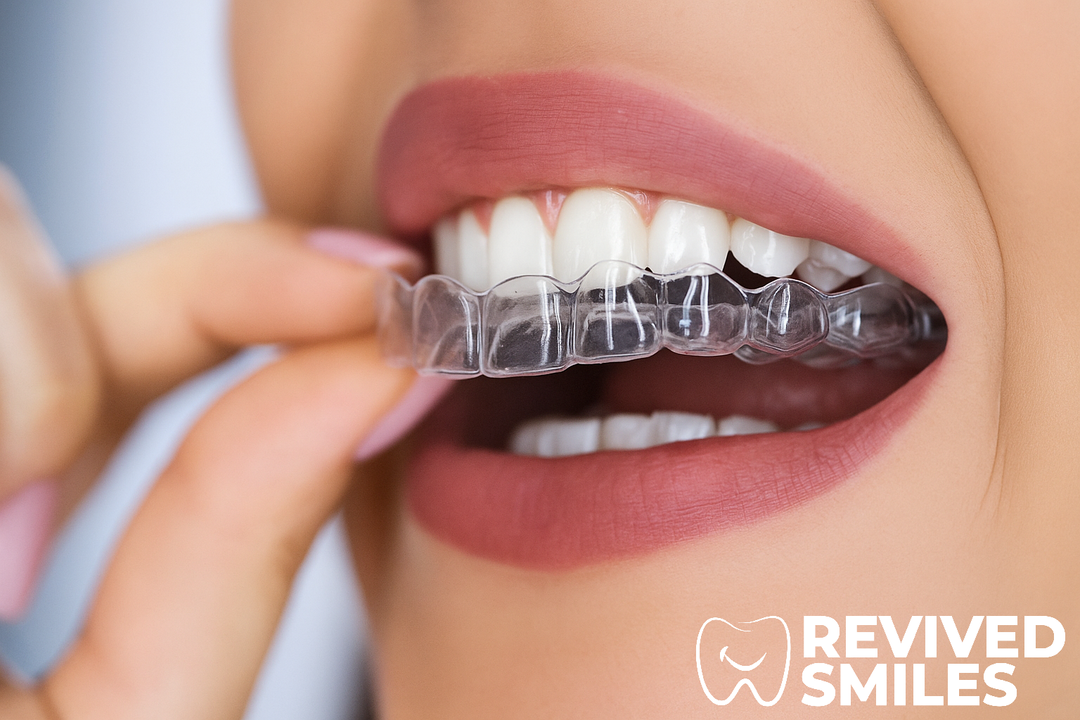Common Problems with Partial Dentures: How to Spot, Prevent, and Fix Them

Introduction to Partial Dentures
Partial dentures are a popular denture solution for people who have lost some, but not all, of their natural teeth. Designed to fill the gaps left by missing teeth, partial dentures help restore your ability to chew, speak, and smile with confidence.
By supporting the remaining teeth and maintaining the structure of your mouth, they also help prevent further dental complications that can arise from missing teeth.
For many denture wearers, the first few days or weeks with new partial dentures are accompanied by an adjustment period. It’s normal to experience some discomfort, sore gums, or mouth irritation as your gums and mouth get used to the new fit.
These common denture problems are part of the process, and most people find that their dentures become more comfortable with time and proper care.
To make the transition smoother, it’s important to follow your dentist’s instructions, practice good oral hygiene, and attend regular checkups. With patience and the right approach, partial dentures can be a reliable and comfortable solution for restoring both function and appearance to your teeth.
Why Partial Dentures Help and Why Problems Happen
Partial dentures are more than just a set of replacement teeth; they’re a bridge back to eating, speaking, and smiling with confidence. For many denture wearers, they restore not only function but also the feeling of being themselves again.
They balance the bite, protect remaining natural teeth, and give us the courage to share a smile without worry.
But let’s be honest: dentures aren’t perfect. Our mouths naturally change, and so do the materials we rely on every day. That means common problems with partial dentures can creep in over time, from gum irritation and discomfort to loose clasps or even breakage.
Instability, slipping, and gum irritation are leading consequences of poor denture fit or inadequate care, often resulting in further complications or discomfort.
Here’s the reassuring part: these challenges are extremely common and, in most cases, fixable. By understanding what’s going on, we can address denture problems early, keep your dentures fit properly, and protect overall oral health for the long haul.
Why Do Partial Dentures Sometimes Cause Discomfort?
One of the most common denture problems is when partial dentures stop fitting the way they used to. Our gums and bones slowly shift with age, and what once felt snug can suddenly feel like ill-fitting dentures. That poor fit often shows up as sore spots, ulcers, or sore gums.
These aches shouldn’t be ignored. Left untreated, rubbing and irritation can spiral into infection and make wearing partial dentures unbearable.
The fix usually isn’t complicated. A dental team can reline the partial denture, make necessary adjustments, or advise when it’s time for a replacement. Acting quickly helps prevent soreness from turning into something worse.
Gum & Soft Tissue Irritation
Gums are sensitive, and when dentures rub in the wrong way, the gum tissue gets sore. Overextended edges or poor alignment can cause painful ulcers. In some cases, irritation opens the door to denture stomatitis, an infection often linked to bacteria or yeast.
This doesn’t just hurt; it can affect oral health and even lead to bone loss. Denture stomatitis treated early with antifungal treatment, good oral hygiene, and adjustments helps restore comfort.
Prevention is key. Taking dentures out at night, cleaning dentures daily with denture cleaner or denture cleaning solution, and visiting a dentist regularly keep tissues healthier.
Why Do Dentures Slip or Feel Unstable?
Slipping dentures are a top complaint for denture wearers. Over time, clasps loosen, denture adhesives wear off quickly, or gums change shape. This leads to instability when eating certain foods, talking, or even smiling.
Slippage isn’t just inconvenient; it can make meals stressful and cause embarrassment.
Temporary fixes like denture adhesives can help, but the effective solution is a professional adjustment. A dentist can tighten clasps or reshape the base. For those tired of repeated adjustments, implant-supported dentures may be the best upgrade.
Difficulty Eating
One of the hardest parts of wearing dentures is learning to eat comfortably again. Sticky or harder foods can cause partials to move, and food particles often sneak underneath, causing sore spots and gum irritation.
It can feel discouraging when favorite foods suddenly seem impossible. But with a little patience and an adjustment period of two weeks or so, eating feels more natural again.
Biting down too hard on certain foods or objects can damage partial dentures, leading to cracks or breakage.
Cutting food into smaller bites, choosing soft foods at first, and learning to chew slowly on both sides are helpful steps. A denture that fits properly, plus these techniques, makes eating much easier.
Can Partial Dentures Affect Speech?
It’s not unusual to notice difficulty speaking after getting new dentures. Some denture wearers develop a slight lisp or find certain words harder to pronounce. The foreign object feeling of a partial denture changes how the tongue and lips move until the mouth adjusts.
This can feel awkward, but practice makes perfect.
Techniques like practice reading aloud, repeating certain words, and working with your dentist for adjustments help speed up progress. Over time, speaking feels normal again.
Breakage & Wear
Even with proper care, dentures wear down over time. Years of chewing, changes in the mouth, and handling can cause cracks, worn-down teeth, or broken clasps.
Small cracks can quickly lead to bigger issues. A broken clasp might suddenly make wearing dentures impossible.
Repairs are best handled by your dentist. DIY fixes with glue or too much pressure can damage the denture further or harm your gums. When breakage happens often, it’s usually time for a new partial denture.
Hygiene Issues

Good oral hygiene is just as important with partial dentures as with natural teeth. Without daily cleaning, food particles and bacteria build up quickly. This leads to bad breath, gum irritation, and infection.
Neglecting proper care also shortens the life of dentures.
Daily cleaning with a soft brush, soaking in denture solution, and rinsing after meals are essential. Using fluoride toothpaste on remaining teeth protects against decay, while a healthy diet supports oral health overall.
Can Partial Dentures Damage Natural Teeth?
Partial dentures rely on natural teeth for support, but too much pressure from clasps may weaken enamel and cause gum irritation. Food particles trapped around abutment teeth raise the risk of cavities or gum disease.
The danger is losing the very teeth meant to stabilize the denture.
Preventing this means practicing good oral hygiene, using fluoride toothpaste, and seeing a dentist regularly. Protecting natural teeth ensures partial dentures continue to fit properly.
Allergic Reactions
Though rare, denture wearers sometimes react to the materials in their partial denture. Acrylic or metal may cause redness, itching, or swelling.
Because irritation can mimic other denture problems, professional evaluation is necessary.
Flexible partial dentures made of Valplast, TCS, or DuraFlex can be an effective solution for those with allergies, offering comfort and proper care for sensitive gum tissue.
Bone & Jaw Changes
Even with wearing dentures, the bone beneath the gums naturally resorbs over time. This explains why dentures that once fit properly may now feel unstable.
Bone loss can’t be stopped completely, but regular checkups help manage it. Relining or replacing dentures restores stability and comfort.
Implant-supported dentures are another option; they help prevent bone loss and provide stability that partials alone can’t.
Impact on Daily Life
Wearing partial dentures can bring big changes to your daily routine, especially during the adjustment period. Many denture wearers notice difficulty eating certain foods, challenges with speaking clearly, or even feeling self-conscious about their smile at first. These are common denture problems, but with time and the right care, they usually improve.
Good oral hygiene is essential for keeping your mouth healthy and your dentures comfortable. Daily cleaning with a denture brush and denture cleaning solution helps prevent gum irritation, bad breath, and other issues. It’s also important to follow a healthy diet, eat soft foods during the adjustment period, and avoid certain foods that might cause discomfort or damage your dentures.
Regular checkups with your dentist ensure that your partial dentures fit properly and allow for any necessary adjustments. If you experience discomfort, difficulty eating, or other problems, don’t hesitate to seek professional advice. Timely adjustments can make a big difference.
By practicing proper care, maintaining daily cleaning habits, and making smart food choices, denture wearers can overcome the initial challenges of wearing partial dentures. With a little patience and support from your dental team, you’ll soon enjoy a confident smile and improved quality of life.
Are There Better Alternatives or Upgrades?
When adjustments no longer help, denture wearers may consider upgrades. Implant-supported dentures stay secure, prevent bone loss, and eliminate the worry of slippage.
Flexible partial dentures are another option, lighter and more natural-looking than traditional acrylic ones.
The choice depends on oral health, lifestyle, and budget. But for many, these upgrades are an effective solution to common denture problems.
Prevention & Maintenance
Most denture problems can be avoided with proper care and good oral hygiene.
Here are some tips to keep your dentures in top shape:
-
Remove them at night to rest the gum tissue.
-
Clean dentures daily with a gentle denture cleaner.
-
Handle with care to avoid drops or too much pressure.
-
Visit your dentist regularly for regular checkups and necessary adjustments.
Consistent habits not only extend the life of dentures but also protect overall oral health.
When to See a Dentist
Some discomfort is normal during the first two weeks of wearing partial dentures, but persistent soreness, dry mouth, or difficulty speaking should not be ignored. Other warning signs include loose clasps, broken parts, or dentures that no longer fit properly.
Professional treatment is the only way to restore comfort and function. Your dental team will check for infection, gum irritation, or fit issues and provide timely treatment.
Regular checkups prevent small issues from growing into major denture problems.
FAQs
What are the most common problems people have with partial dentures?
Poor fit, gum irritation, slippage, hygiene issues, and breakage are the most frequently reported denture problems.
Why do my partial dentures cause soreness or ulcers on my gums?
Usually due to ill-fitting dentures, friction, or overextended edges. Denture stomatitis treated early prevents worsening.
What causes a partial denture to become loose over time?
Bone and gum changes, worn clasps, and general wear often make dentures looser.
Can partial dentures cause infections or bad breath?
Yes, if not cleaned with a denture cleaner or denture cleaning solution. Bacteria and food particles can lead to infection and bad breath.
How often should a partial denture be adjusted or relined?
Every few years, or sooner if problems show up. Regular checkups ensure dentures fit properly.
What should I do if my partial denture breaks or a clasp becomes loose?
See your dentist for professional treatment. DIY fixes and too much pressure can make things worse.
Are there alternatives when I can’t get my partial denture to feel comfortable?
Yes, flexible partials or implant-supported dentures are often an effective solution.
Conclusion
Partial dentures restore smiles, function, and confidence for people with missing teeth. While common denture problems like poor fit, gum irritation, or difficulty eating are frustrating, most are manageable with timely adjustments and proper care.
By staying proactive with oral hygiene, using a denture cleaning solution, and visiting a dentist regularly, denture wearers can keep their dentures comfortable and effective. And when challenges persist, modern alternatives like implant-supported or flexible partial dentures offer long-term solutions.
With the right approach, partial dentures remain a dependable, comfortable way to protect oral health and enjoy a confident smile.





Leave a comment